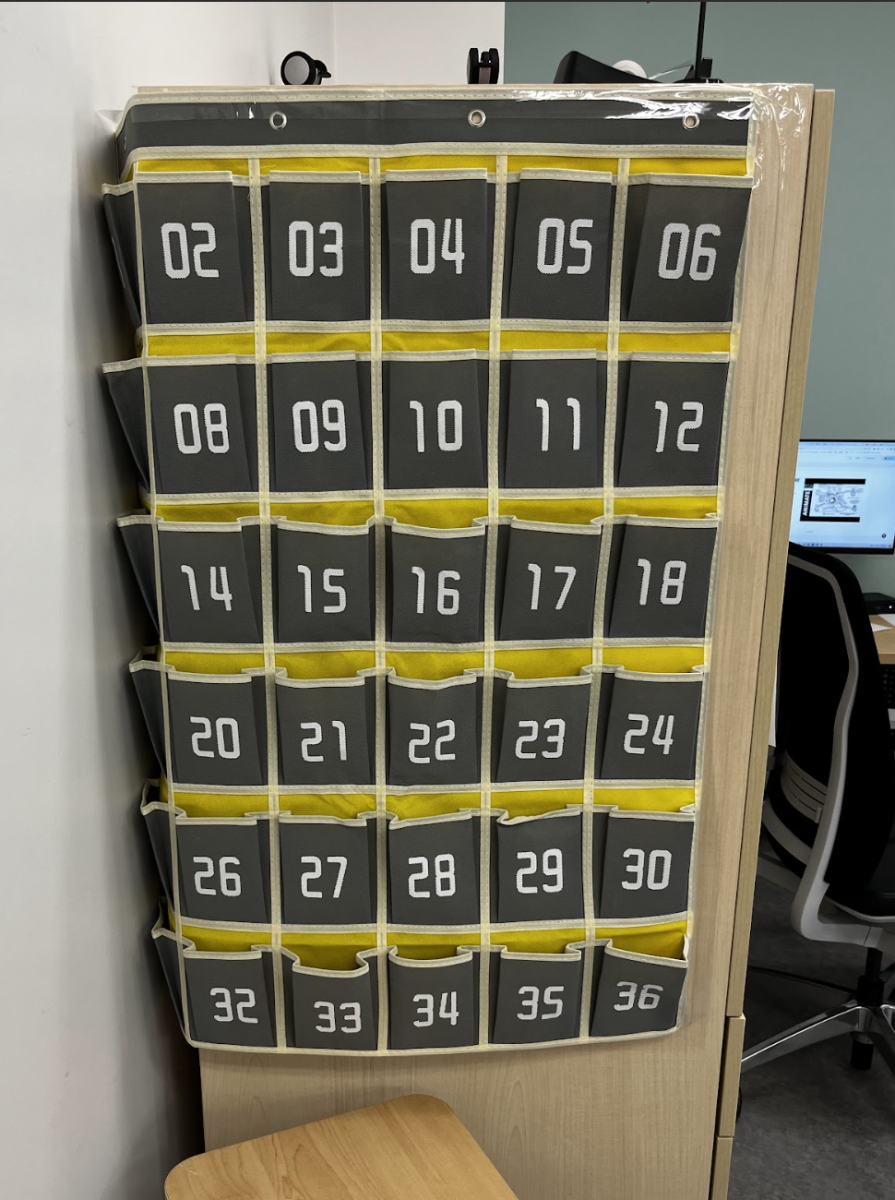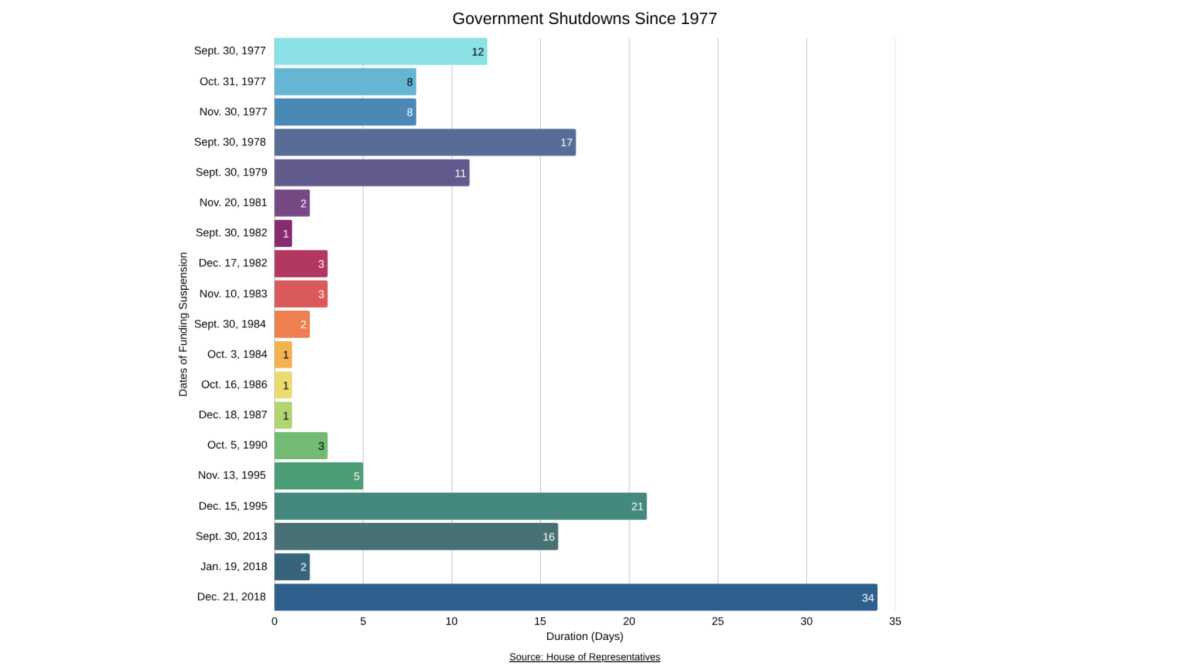Following an executive order by Governor Glenn Youngkin, the Virginia Department of Education issued draft guidelines to ban cell phones from “bell-to-bell” instruction during the school day. The guidelines caused the administration at Meridian to take action to eliminate phones during classroom instruction per the requirements.
On July 9, Governor Youngkin issued the executive order that would establish a cell-phone free education in schools statewide. The guidelines later issued August 15 outlined the reason behind this decision, stating that “Creating a cell phone-free education environment in public schools is not only a prudent measure, but an essential one to promote a healthier and more focused educational environment where every child is free to learn.”
The cell-phone free policy has different meanings depending on the level of education. For instance, students K-5 are prohibited from using cellphones on school grounds during the school day. Middle school students are not allowed to use their cell phones during the bell-to-bell school day. If cell phones are brought to school they have to be off and away.
The guidelines for high schoolers are more lenient than those for the younger students. Phones must be away during bell-to-bell instructional time, which allows each school to establish their definition for bell-to-bell instructional time.
Many students don’t mind the phones being taken away during class time, as long as they can have their phones outside of class.
“We don’t need our phones during class time, but if we get them during Mustang Block and transition periods, I think it’s a really good decision,” said junior Emily Beloe.
Biology teacher Mrs. Jerren Pittaluga agrees. “I think it’s important that students are focused on academics and less focused on their phones…It’s a great policy to have, but I also think it’s important that high school students are learning responsibility with their phones, so I do not think that they should be taken away completely.”
On the other hand, many students like the reassurance that cell phones give them.
“I don’t like the phone policy. If I’m in an emergency I want to have my phone to text my family… I need the assurance that I’ll be okay,” said Senior Maya Curley.
These new guidelines caused Falls Church City Public School administrators to take action on this issue and change current school policies on cell phone use. Despite the fact, Principal Peter Laub had plans to alter the phone policy even before the new mandate was issued.
“Myself and Mr. Pickering met with parents a couple of different times last school year to hear some concerns about technology in school from a parenting lens of what’s good and healthy for teenagers. So we were already thinking about adjustments we needed to make…What we are doing now is what I wanted to do even before the Governor’s decision,” said Laub.
“Studies have shown a correlation between heavy social media use and depression, anxiety, loneliness, and suicidal ideation. The platforms are designed to be addictive, using algorithms that feed users content based on their preferences and interactions, keeping them engaged for longer periods,’ Columbia University’s Department of Psychiatry writes about the effect that smartphones have on students’ health which is a strong reason that governments nationwide are taking the next step in limiting cell phone use during the school day.
The current debate within our school and the state is the question on whether cell phones should be allowed at all during the school day. Laub believes in allowing students to have the responsibility of using their phones during passing time and lunch periods, hoping to teach students life management skills.
“I think it is an age appropriate boundary that we’ve put in place for kids. I think that what we are trying to do in schools is educating you to be a good person in all those things. We want you to learn math, science, and history. But we also want you to have responsibility and integrity and all of those characteristics that make a good person…I think that’s just part of education as a whole…I think it’s the right thing for a high school.” Student Council Executive Board member Joyce Tadesse agreed.
“I was in the meeting with Mr. Laub when we were talking about it with SCA Exec, and we were advocating for the students, because we figured most of the student body would want to keep their cell phones for as long as they could,” said Tadesse,“But the reason we didn’t want cell phones taken away completely was because not having cell phones here does not teach high schoolers how to use their phones appropriately, or when to put them away. It just shuts the issue out altogether, which is unhelpful when people are preparing to go to college.”
Tadesse also voiced her own opinion on the issue.
“I don’t mind not having my phone.I don’t think I’m gonna mind when we get rid of them altogether, because if everyone has them taken away, it will not be that big of a deal.”
Similar to students, parents are happy with the removal of cellphones from the classroom setting, to aid in the furtherment of their child’s education.
“As a parent, I think it’s a positive thing,” said parent Vanessa Diaz, “I know that my child does not like it at all, and the teens will not like it, but I don’t think that cell phones should be allowed at school. The kids are going to be way more proactive and get more work done in less time as well as pay more attention to the class and the teachers. I’m happy with the decision from the school.”
English teacher Mr. Brian Walsh understands that it may be challenging at the beginning for students, but is better for them in the long run. “I think that the students would agree with the teachers that the phones were an issue. I don’t think a lot of the students wanted to hear the teachers tell somebody to put their phone away, but I think the students are doing a really good job controlling their phone use. I don’t see any reason to tweak it.”
The current guidelines are available for review until September 16, 2024. Once the guidelines are finalized, schools statewide have until January 1, 2025 to create or change current policies. Therefore while many students, staff, and parents are okay with the current policy, it is subject to become harsher which can breed a different reaction from the community.










